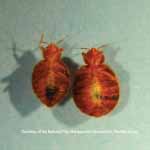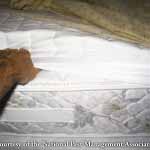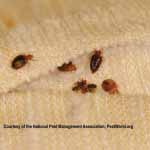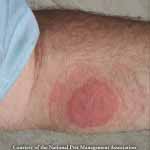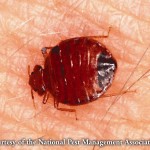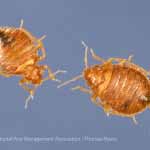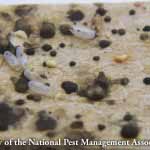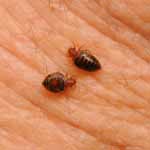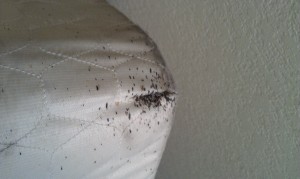 Bed Bug Awareness Week Bed Bug Facts & Prevention
Bed Bug Awareness Week Bed Bug Facts & Prevention
As part of National Pest Management Month, PPMA is launching “Bed Bug Awareness Week,” April 22 – 26 to promote public vigilance and provide essential prevention advice about bed bugs in advance of the summer travel season.
Tips Bed Bug Facts
• Bed bugs are found worldwide and are thought to have come to the U.S. from Europe in the 17th century.
• Bed bugs primarily feed on humans, but they can also feed on warm-‐blooded animals including birds, mice and family pets.
• Adults are just under ¼” long, relatively flat and oval in shape compared to most other insects.
• Bed bugs can lay one to five eggs per day and more than 500 in a lifetime.
• Bed bugs can survive for several months without eating.
• Bed bugs can withstand a wide range of temperatures, from nearly freezing to 122 degrees Fahrenheit.
• Bed bugs draw blood for about five minutes before retreating to digest.
• Bed bug hatchlings are so small they can pass through a stitch-‐hole in a mattress.
• Bed bugs can ingest seven-‐times their own weight in blood, which would be the equivalent of an average-‐sized male drinking
120 gallons of liquid.
Bed Bug Prevention Tips
There are several steps you can take to help prevent bed bugs in your everyday life. Regular bed bug inspections are the best line of defense to help you avoid a bed bug infestation.
Here are some other prevention tips to keep in mind:
• Regularly inspect areas where pets sleep for signs of bed bugs such as pepper-‐like stains, molted bed bug skins and white, sticky eggs.
• Never bring second-‐hand furniture, especially mattresses and box springs, into a home or college dorm without thoroughly examining it for signs of a bed bug infestation.
• At hotels, thoroughly inspect the entire room before unpacking, including behind the headboard and in furniture. Pull back the
bed sheets and check the mattress seams for pepper-‐like stains that may be evidence of bed bug activity.
• If you suspect an infestation or problem, notify management and change rooms immediately. Be sure the new room is not adjacent
to or directly below or above the possibly infested room.
• Keep suitcases in plastic trash bags or protective covers during a hotel stay to prevent bed bugs from nesting there. Do not put
them on the beds.
• Upon returning home from a trip, inspect all suitcases and other belongings before bringing them into the house.
• Wash all clothes -‐ even those that have not been worn -‐ in hot water and dry them using an extra-‐hot dryer setting.
Information provided by Professional Pest Management Alliance
